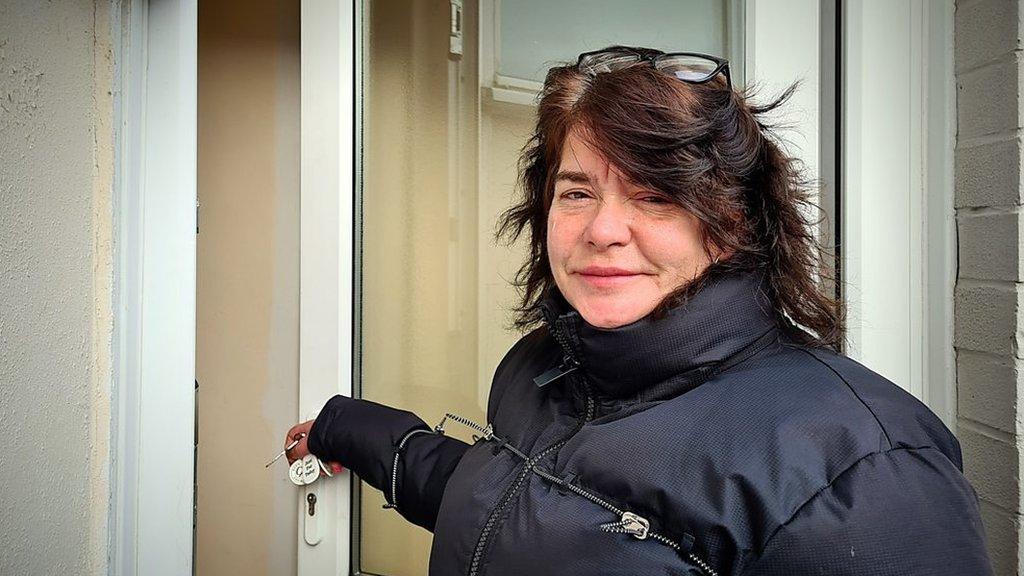Nottingham: City service helping rough sleepers off the streets
- Published
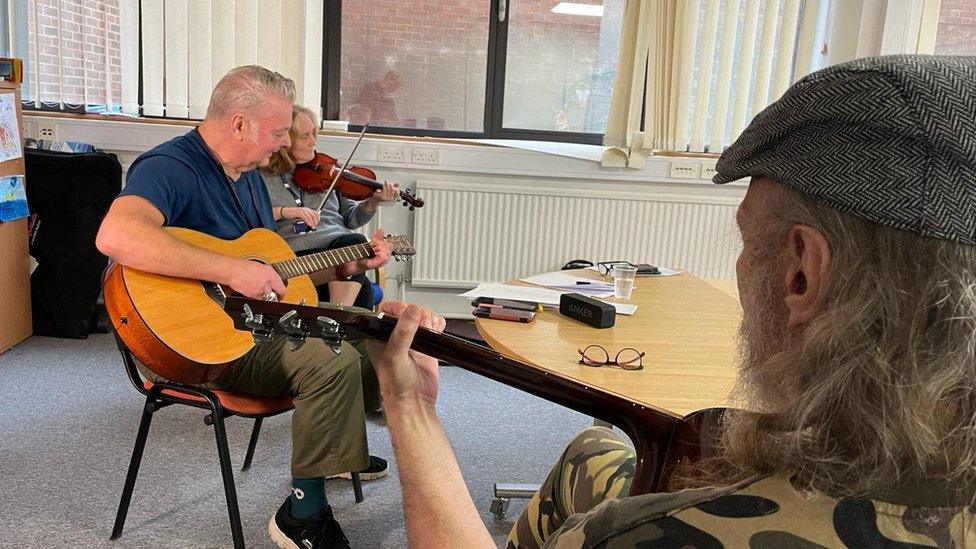
Service users are offered music therapy at the Nottingham Recovery Network
Music and horticultural activities are giving opportunities to rough sleepers addicted to drink and drugs at a support service in Nottinghamshire.
The Nottingham Recovery Network has been supporting people on the street who are living with addiction issues.
The service offers activities like gardening and music therapy to help build the confidence of service users.
They are provided with "traditional" drug and alcohol treatments, as well as advice on debt and housing.
Some former rough sleepers have found paid jobs helping others access support from the service.
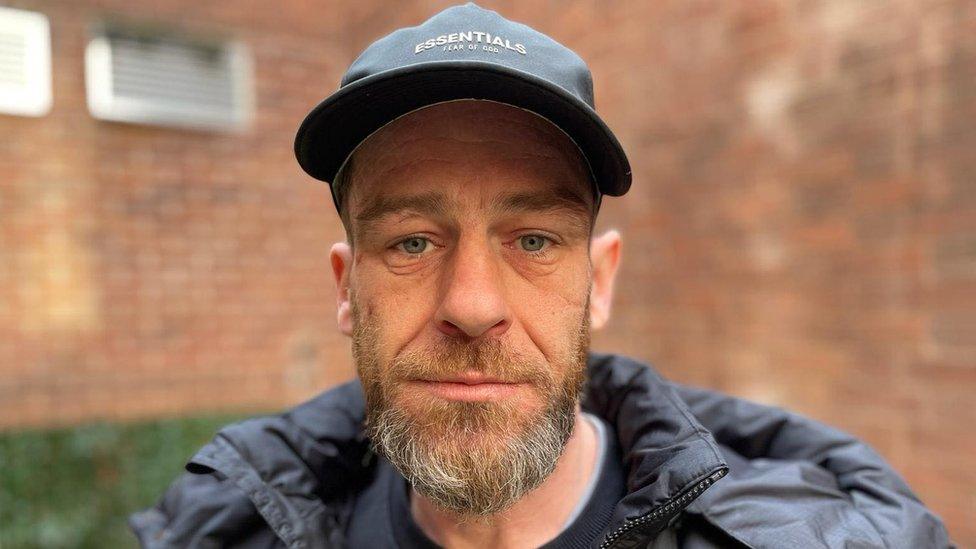
Paul White hopes the service can get him back on the right track
Paul White was homeless and spent a year on the streets of Nottingham after splitting up with his partner.
The 35-year-old said he caught pneumonia twice and rough sleeping team nurses found him with borderline hypothermia.
"I was in my sleeping bag and it was pouring with rain," he said. "The nurse woke me up and wouldn't leave me alone until I went to the hospital."
Mr White is one of 130 people being supported by the Rough Sleepers Drug and Alcohol Treatment Team.
The team has helped him move into supported accommodation where staff "mother him" with tasks as simple as shopping.
Its support workers, based at Nottingham's Wellbeing Hub on Hounds Gate, are also helping Paul get into rehabilitation for alcohol addiction.
"I've screamed my head off and they've known how to deal with me. If I didn't get the help I got here, I'd probably be dead or in prison," added Mr White.
"I want to pursue my dreams of boxing. I want to get my family back, and hopefully go home next year."
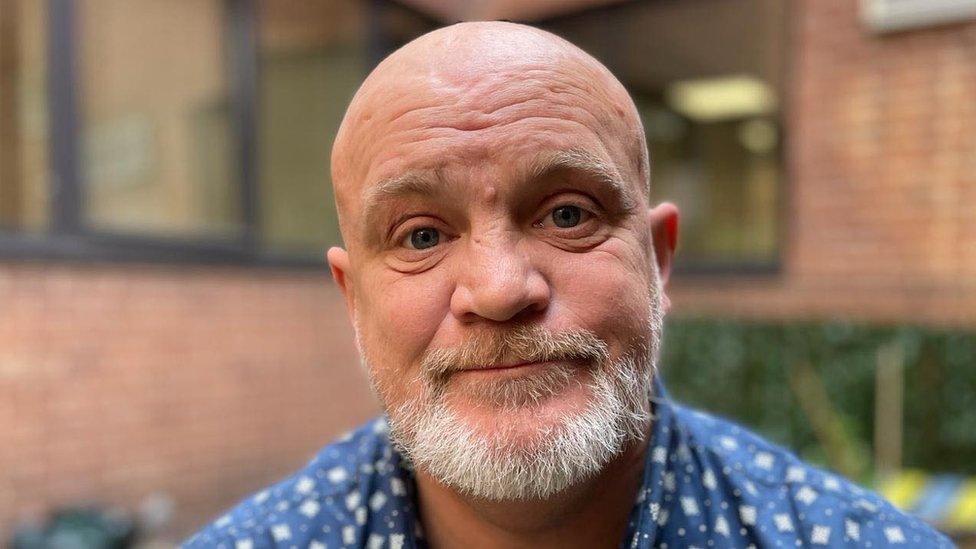
Lee Harrell became homeless after leaving prison
The network combines addiction treatment with activities designed to give a sense of purpose, including music therapy, gardening and acupuncture sessions.
Lee Harrell, who spent more than 30 years addicted to alcohol and ended up in prison, started volunteering at the service and was later offered a job.
He is one of several workers who use their own "lived experience" to help people like Mr White turn their lives around.
Mr Harrell said: "When I got released from prison, I was effectively street homeless. That was a massive shock.
"You can't live a normal life on the streets. You will fall into some sort of alcohol or drug abuse.
"It [alcohol or drug abuse] wants your curtains drawn, on your own, hating the world until you're dead. And you just go into self-pity."
'Help somebody'
He said the network helped him get a volunteering opportunity, which led to his role as a recovery connector.
"I know what it's like to sleep on concrete," added Mr Harrell. "I've walked in people's shoes and that helps me see their point of view.
"I listen to people and nine times out of 10 that's all people want. There's not a better job in the world than being able to help somebody."
Apollos Clifton-Brown, director of health and social care at the Framework Housing Association - which runs the network - said it could also prevent people from sleeping rough.
He said: "People might be struggling with drugs and alcohol, they might be struggling with housing or debts or mental health.
"We can start pulling that together before they've lost everything."

Follow BBC East Midlands on Facebook, external, on X, external, or on Instagram, external. Send your story ideas to eastmidsnews@bbc.co.uk, external.
Related topics
- Published7 February 2024
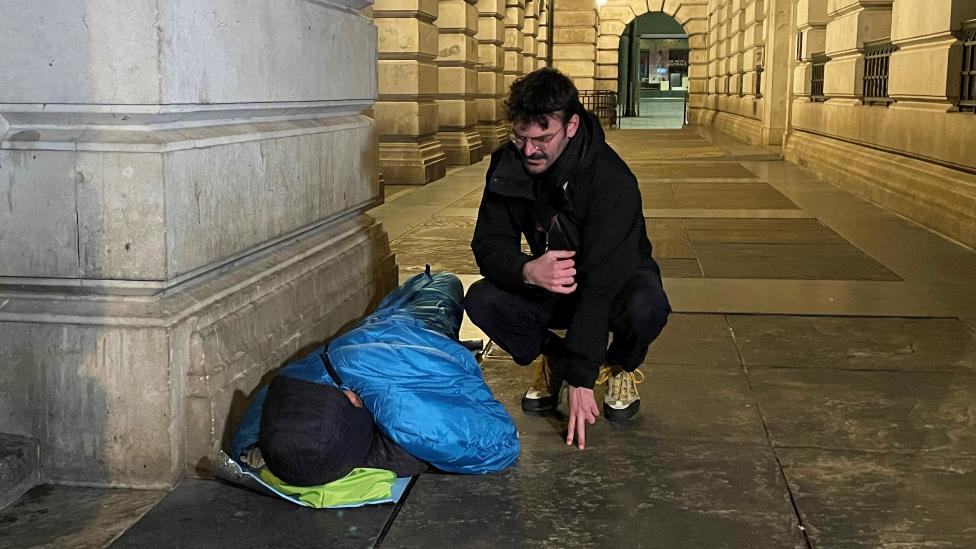
- Published12 October 2023
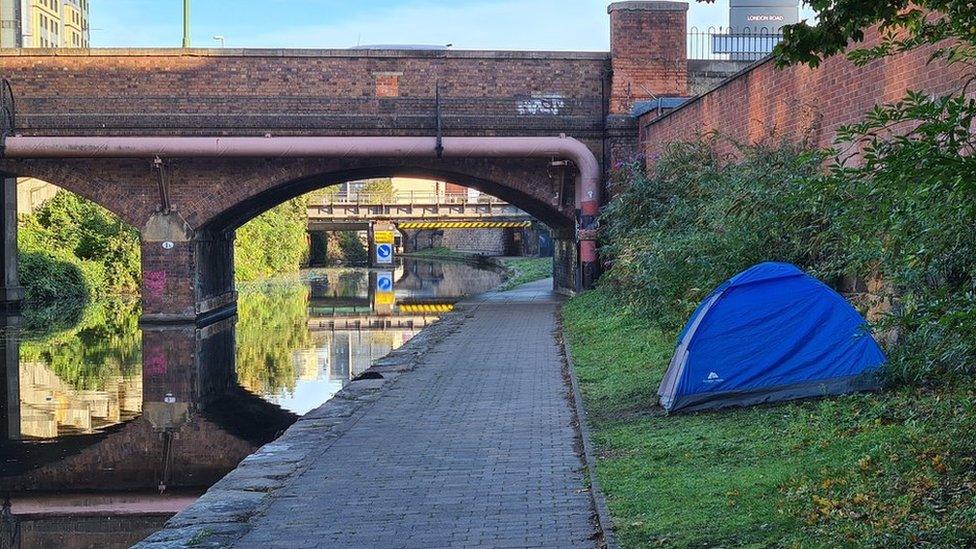
- Published11 October 2023
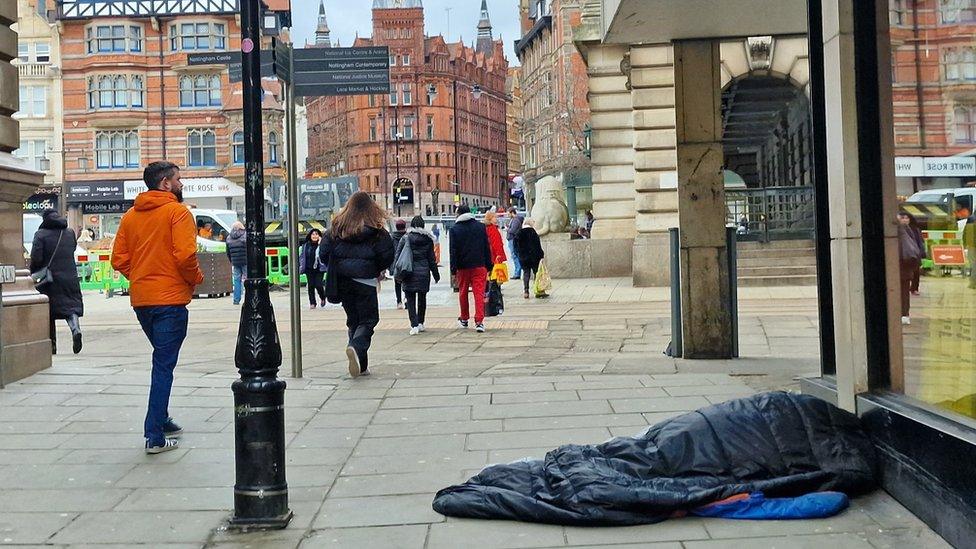
- Published3 February 2023
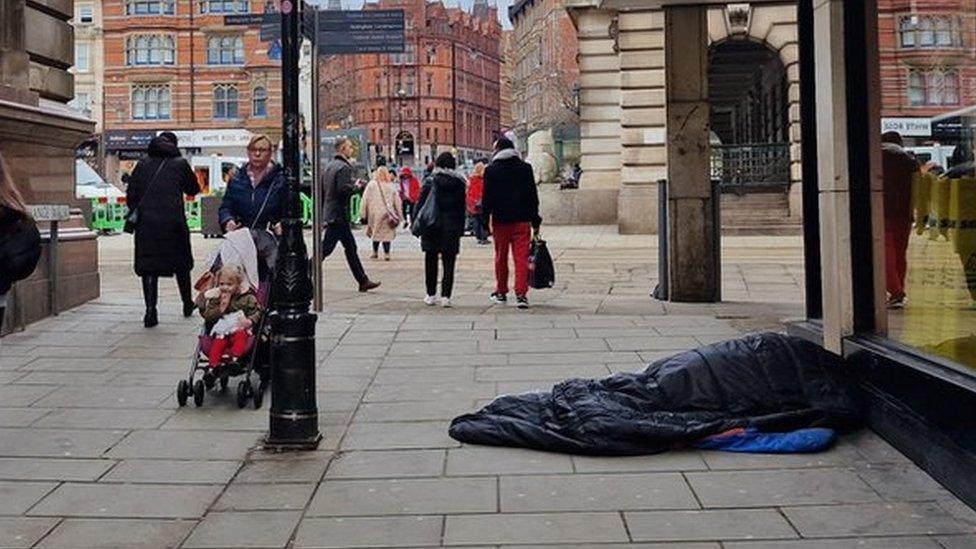
- Published7 March 2022
